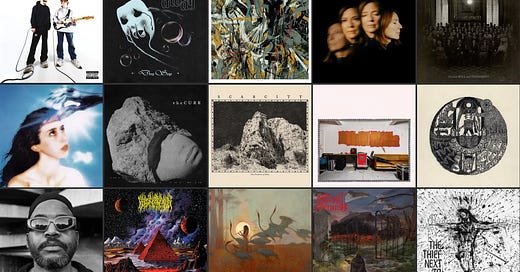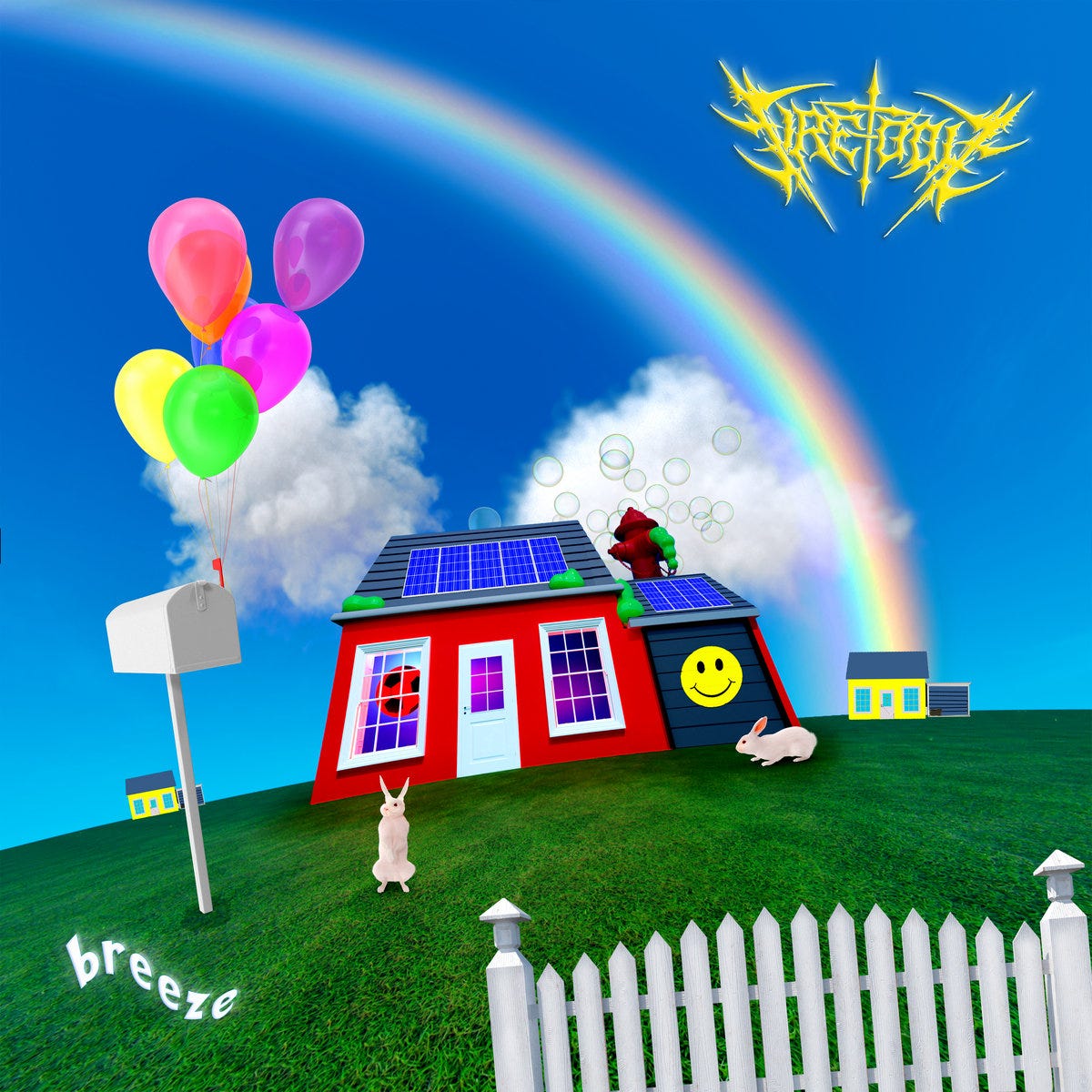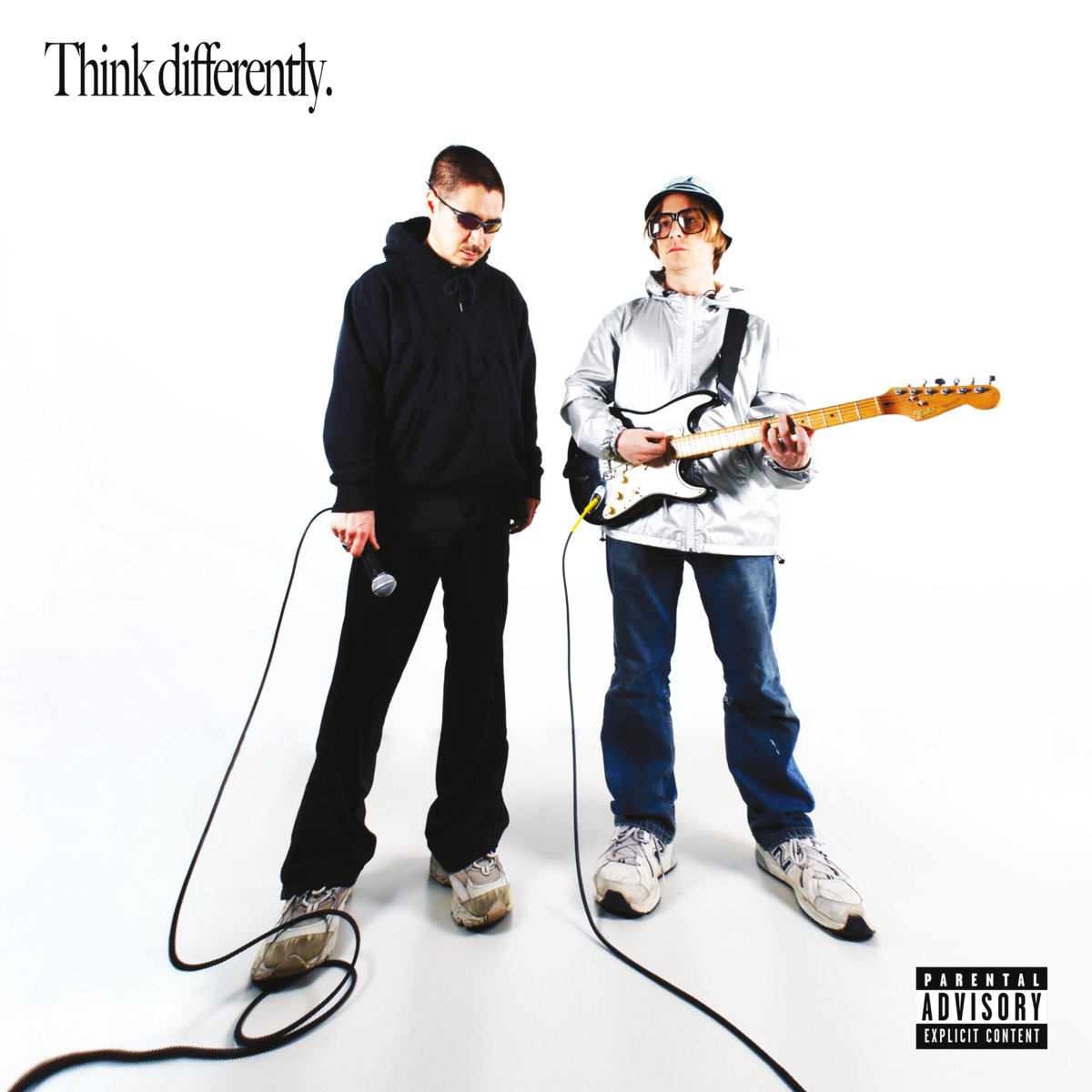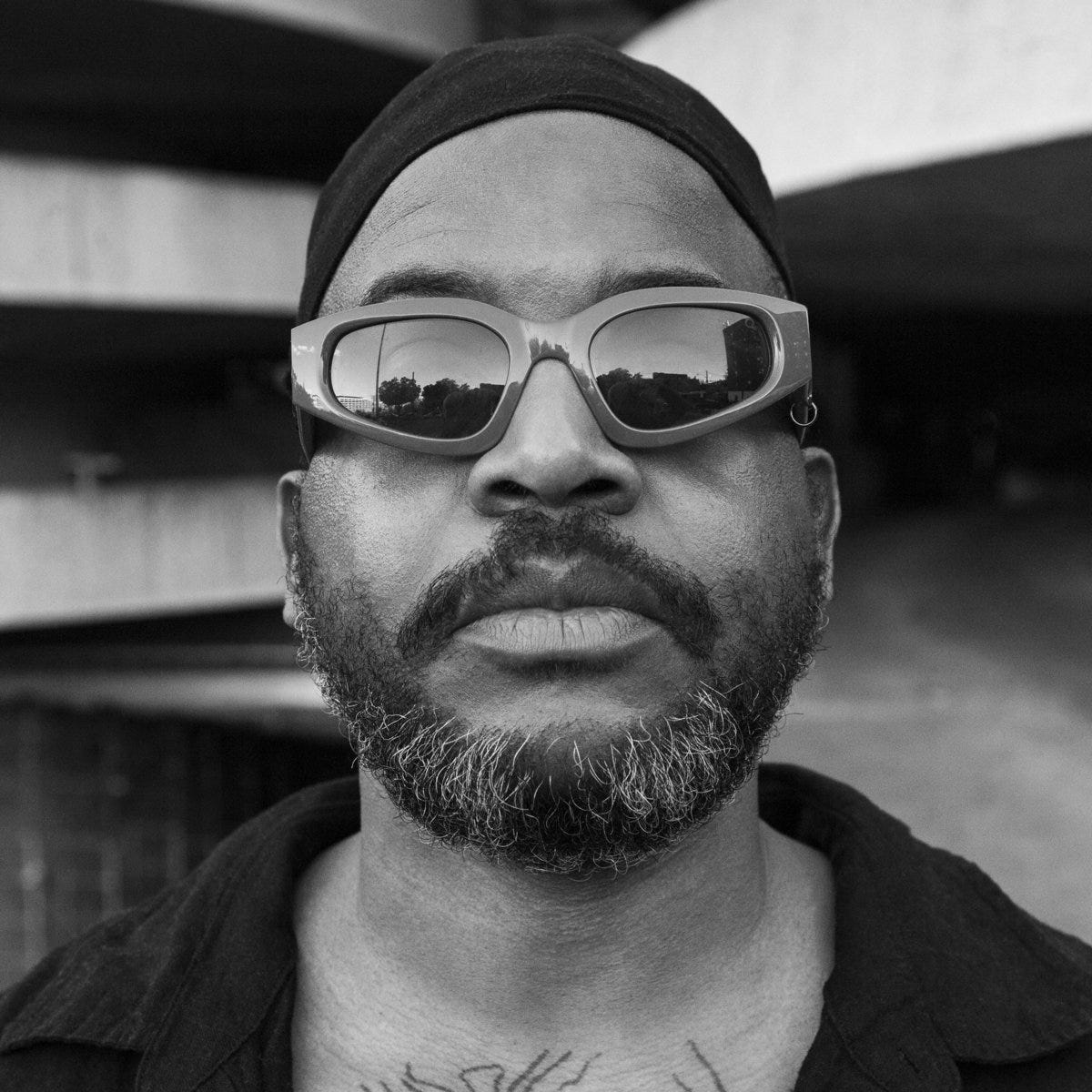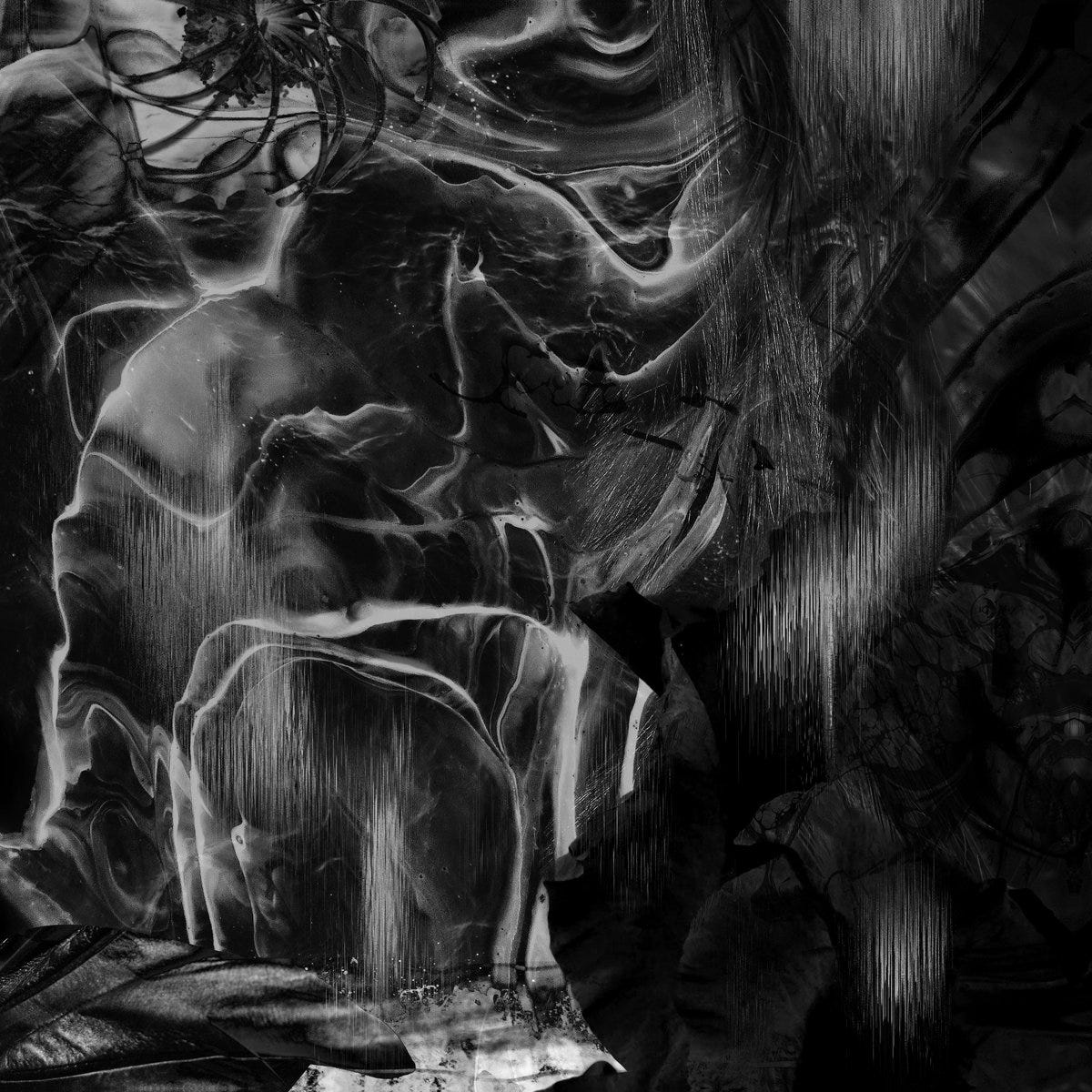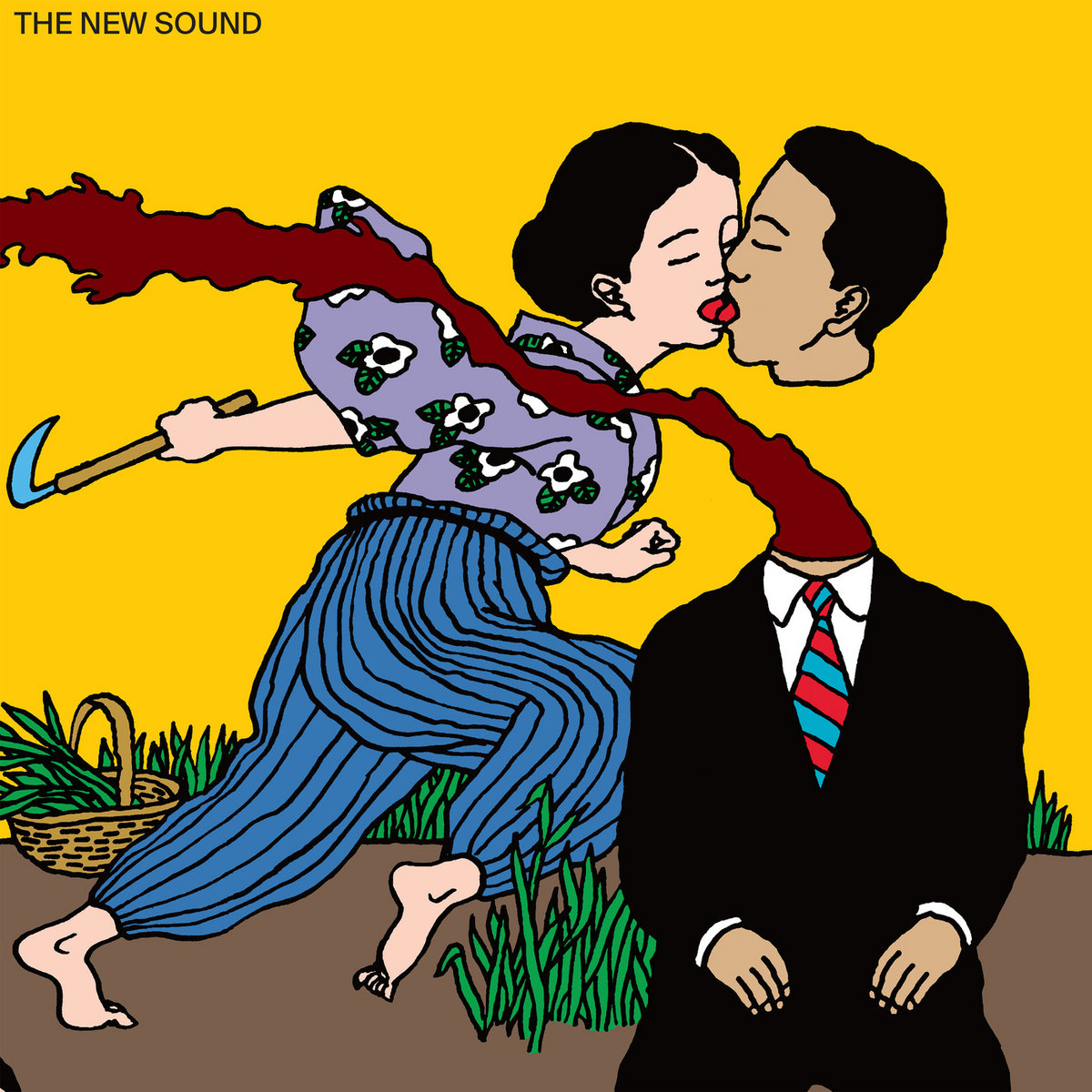Season’s greetings! After twelve months of listening, re-listening, silent contemplation, heated arguments, friendly conversation, and miscellaneous research I have determined my list of the best music released in the year 2024. I selected 25 full length albums and 5 EPs according to my personal subjective criteria. However, since this is my newsletter and because I spent a nearly a month of the year outlining my personal musical/critical philosophy I’m confidant that by the strictures of Progmatism these are the 30 best releases of the year. If you disagree, great! You are encouraged to provide lists and arguments of your own in the comment section.
While this list serves as a comprehensive overview of my taste in new music in the year 2024, it hardly scratches the surface of new music in 2024 in its totality. I am only one man with only two ears and one brain. I won’t pretend to have heard, digested, and ranked every album released in the last 12 months. Since the vibes lately have felt like a mangled echo of the GWB era (Hummers reborn as Cybertrucks, Hawk Tuah and the Zynternet, War in the Middle East, whatever we’re taking “indie sleaze” to mean this week, etc) I’d like to sort the albums missing from this list into the Rumsfeldian quadrants of known & unknown. There are the “unknown unknowns”, i.e. the albums that I am completely unaware of. Statistically speaking, the true best album of the year likely resides within this undifferentiated and unexplored mass. Then there are “unknown knowns”, the albums that I’ve heard but don’t yet fully appreciate. The most glaring omission from this category is the Cindy Lee record, which has a strong case for being the most important album of the year at least from a certain vantage. I still need to spend more time with it before I can pass any judgement of my own, however. Then there are the “known unknowns”, or albums that I’m aware of and intend to listen to but haven’t gotten around to yet. Here I must apologize to Mount Eerie and Tyler the Creator, along with the horde of artists that I’ve plucked from other AOTY lists and plan on listening to in 2025. Finally there are the “known knowns”. These are the albums I’ve listened to and can say with confidence are not my thing. If you came here looking for BRAT or any of the other big ticket pop records of the year, this category is for you. I’m glad everyone else had a fun summer but in the words of another Bush-era icon, I am 30 or 40 years old and do not need this.
But enough about the albums that aren’t on this list, what about the the ones that are? If you’ve read this newsletter consistently for the last year there will be few surprises. With the exception of two late arrivals, all of these records have been featured in my 2024 Listening Diary, and many of them made an appearance in my mid-year round up. There are other common threads. Four of them are rap albums. Three of them feature Dylan DiLella on electric guitar. Two of them were recorded in Brazil. Some records are from artists that I’ve loved since high school. Several are from artists I’ve never spent time with before this year. There are returns to form and new heights reached, along with strong first impressions by new acts. There is quite a bit of prog.
One thing that these albums are not is The Lonely Atom by Lamniformes. I am not so craven as to include my own music on a best of list, though I earnestly believe that The Lonely Atom could go toe-to-toe with most of the albums on this list and come out looking pretty good. I’m grateful to everyone that’s given the record a chance, and especially grateful to Calder Hannan for including it in Metal Music Theory’s best albums of the year video alongside a number of releases that also factored into my own list. Scruples aside, my pride demands that I give you the opportunity to consider where The Lonely Atom falls on your personal list of 2024 greats.
Before we get to the full album list, allow me to highlight my five favorite EPs 2024:
My Father Took Me Hunting In The Snow by Sunrise Patriot Motion
Living Is Easy by Agriculture
Dreamfear/Boy Sent From Above by Burial
Flipping by Candy
Woledto by Elyanna
Below you’ll find all 25 of my favorite albums of the year, along with links to the music. I like to think that all of these albums are in conversation with each other, each adding their own perspective on the state of the art in 2024. Thank you for searching out for my voice amid that din, and I hope that you like what you hear. See you in 2025.
25. Breeze by Fire-Toolz
Vibe check.
Either recognize that Fire-Toolz has been one of the best progressive metal acts of the last decade, or be banished to the stygian fields of procedurally generated djent. Breeze is a better Images & Words 2 than anything Dream Theater could ever hope to release next year, provided you took the presence of Roman statues in that album’s liner notes as an invitation to go full Vaporwave in the sequel. Breeze is what would happen if you uploaded a Fine Arts degree Matrix-style into the mind of your favorite MySpace cybergrind band in 2005. Breeze is hilarious until you realize that the punchline is that it isn’t joking. Then, Breeze is beautiful.
24. You Could Do It Tonight by Couch Slut
Dylan DiLella sighting #1 and vibe check #2, You Could Do It Tonight is the first of three New York noise rock records on this list and by far the most harrowing. Couch Slut write songs that ensure that only the band will have a good time and tell jokes that only they can laugh at. They want to see you squirm and will enjoy encouraging you to do so. They are a particular kind of New York extremophile, capable of rocking and rolling even under the most strenuous atmospheres.
23. MG Ultra by Machine Girl
Maybe part of the reason my summer failed to be BRAT enough for the zeitgeist is that I spent the mid-00s listening to Skinny Puppy instead of Peaches. As such, MG Ultra is more my speed of club-friendly excess. Exhilarating when it isn’t bewildering, fun even when it is freaky, MG Ultra proves that Machine Girl’s info-addled take on digital hardcore remains as potent as ever.
22. Cascade by Floating Points
Cascade is notable for being the only album in the bottom six of this list not to originate from either New York or Chicago. Rather than focusing on concerns either regional, scene-specific, or hyper-intimate, the British producer instead trains his eye on that most universal of music spaces: the dance floor. Though this record is a return to Floating Points’ roots as a DJ, those more familiar with Floating Points as a high tech jazz fusionist need not worry that Cascade is a mindless exercise in club hedonism. On the contrary, Sam Shepard is just as considered and meticulous in his work with a 4/4 pulse as he is when working with Pharaoh Saunders.
21. Samurai by Lupe Fiasco
I suppose it’s only appropriate that in the year where hip-hop’s equivalent to the mandate of heaven traded hands to an effort-forward concept-centric rapper that Lupe Fiasco would put out his most captivating record in years. Fiasco has only grown more agile as a performer and insightful as a writer in the years since he was a begrudging savior of the form. Free from the pressure of the spotlight, Lupe uses those time-honed skills to honor the struggle of aspiring rappers (personified, inexplicably, in the form of an alternate reality Amy Winehouse) while reaffirming his own dedication to the craft for its own sake.
20. Think Differently by Callahan & Witscher
As with the Fire-Toolz album above, I urge you to take the leap of faith to accept that having a sense of humor does not mean that Think Differently is a joke. As Rick Roderick once said, “it’s pedagogically useful to not be a damn bore” and no matter what names you could call Callahan & Witscher’s debut collaboration, “boring” isn’t one of them. On the contrary, Think Differently has commanded my full attention every time I’ve listened to it. First because I, a jaded musician fresh off a tour full of diminishing returns, was in the picture and did not appreciate the portrait. Eventually my stance softened to a “lol, so true” camaraderie, before finally I found myself zeroing in to catch every detail of the rich interplay between these seemingly straightforward guitar rock songs and the dense assemblage of samples punctuating the surface. I, too miss the strange and bold music.
19. Deep Sage by Gouge Away
We aren’t even close to daylight when it comes to surveying the full scope of COVID’s impact on pop culture. Sure, we can all spot the signs of a 2020 production in TV and on film, characters interacting mainly by phone calls or confined to a single location. We can see the way it super-charged certain trends on social media and The Content Economy™ writ large. But in the time-consuming and precarious world of record making, we haven’t even scratched the surface of albums of and about the pandemic. Gouge Away’s Deep Sage insists with its very existence that those harried and nerve-wracking months have not left our system yet. It is the bar-rattling of a caged animal, intermittently furious and numb, begging for space and to be spaced out. The best punk album for a moment that has not ended, despite our best and most deluded efforts to move on.
18. The Healer by Sumac
I’m going to talk a few more times about metal records that feel like the products of the musicians reacting to each other in real time. Sumac take that ethos the furthest, having devoted themselves to an untethered freedom that would terrify most heavy metal bands. It terrified me once. I wrote off Sumac for years until Frank “Friend of Music” Meadows gave them his improvisor’s seal of approval. Since then, I’ve learned to humble myself before Sumac’s titanic movements and embrace their music for what it is instead of what I wished it was. This isn’t music dedicated to the past or striving to the future, it’s the sound of three highly skilled and seasoned musicians living fully in the present moment. My one complaint: too long! Sumac should take a page from the jazz greats of old and drip these long form exercises in sub-40 minute bursts on a yearly basis. It would give the rest of us a little more time to catch up.
17. Lives Outgrown by Beth Gibbons
Every time I listen to Lives Outgrown I’m struck by the low and distant sound of the drums. This mutes and mallets approach to the drums provides the record with a heartbeat as heard through layers of flesh and blood. It may seem like an odd detail to fixate on given how much this is a singer’s record, but whether operating as one third of Portishead or solo Beth Gibbons has always understood how to play her striking voice against and along with rhythm for maximum effect. The choice in drum sound is just one careful consideration among many. Unlike the sonic freedom offered by her Portishead bandmates, Gibbons elects to keep the arrangements limited to a sparse collection of instruments (acoustic guitar, electric bass, percussion, a string section). The album is a tightly drawn internal world that only intermittently opens up to sounds from outside its private quarters.
16. The Last Will And Testament by Opeth
The first of two albums on this list included because of how much they make me want to play Bloodborne. I love playing Bloodborne. One of my favorite things to do when playing Bloodborne is run around the eerie, empty Victorian interiors after they’ve been cleared of freakish monsters, wondering at what could have left them in such a state of decay. From 1995 to 2005 no metal music evoked that same feeling of dread tinged by mystery and majesty better than Opeth’s combination of death metal and progressive rock. However, in the last two decades (jeez, it’s been that long already?) Mikael Åkerfeldt and company have heavily favored the non-heavy side of that equation, ditching the death growls and double bass for Hammond organs and bell bottom jeans. But like any good horror movie villain, the cookie monster has a way of coming back when you least expect him. Though The Last Will And Testament is by no means an “old school” Opeth record, it’s still kept its diploma and knows when to dust it off. I’ll have more to say about this album and another album on this list in a longer form soon.
15. Imaginal Disk by Magdalena Bay
One line of thought I didn’t quite have time to weave into my three part series on Progmatism earlier this fall is that prog has a great track record as a talent incubator. Even if you don’t devote your whole career to side-long symphonies, spending some time in the prog trenches can sharpen any musician’s chops and foster out of the box creativity. Just look at what Peter Gabriel or Susumu Hirasawa got up to after leaving Genesis and Mandrake, respectively. Had I listened to Imaginal Disk, the second album from Magdalena Bay, with more urgency I would have had a perfect modern example for this theory. Imaginal Disk is pop by people who’ve been on the other side. Each song contains the raw total of sonic decisions necessary to construct a 12-minute epic condensed into songs a quarter of that length. Because I was extremely late to this record I don’t have as much to say about as I’d like, but I can say that if I had heard this symmetrical genre-agnostic record littered with mirror imagery back in 2019 when I spent my nights in the kitchen fine-tuning demos for The Lonely Atom, I would have hurled my laptop out of the window.
14. Songs Of A Lost World by The Cure
According to my friends who know more about this stuff than I do, The Cure have been playing a number of the songs on Songs live for years, long predating the album’s release in 2024. Nothing wrong with taking your time, especially if you know what it’s worth. Songs is the product of a band that doesn’t need to prove anything to anyone. They could live a comfortable life as a tribute band to their own catalog. That they chose to add an addendum to that massive body of work after so long a pause is fascinating unto itself. That they chose to do so without budging an inch from their tried and true methods is also interesting. All due respect to the Kim Gordons and Alan Sparhawks of the world, but there’s something encouraging about seeing a band craft yet another all-timer out of their oldest principles. It helps of course that this album’s concerns with mortality and the horrible passage of time fit perfectly with The Cure’s slow-developing and downcast songwriting style. They’ve aged into themselves, acquiring naturally a melancholy that was once a construct.
13. The Promise of Rain by Scarcity
Dylan DeLilla sighting #2. Like the Sumac record earlier and the third DeLilla record further down the list, The Promise of Rain is a testament to the benefits of writing heavy music collectively as a band. While the previous (very good) Scarcity album was effectively a duo outlet for guitarist & composer Brendon Randall-Myers and singer Doug Moore, Rain brought the rest of Scarcity’s rhythm section, DeLilla along with drummer Lev Weinstein and bassist Tristan Kasten-Krause, into the process. While most of what I’ve read about the record has focused on the interplay of DeLilla and Randall-Myers’ microtonal guitar-work, it’s the addition of Kasten-Krause and Weinstein that stands out to me. Weinstein adds some of the slow rotating polyrhythms he’s known for in Krallice, while Kasten-Krause’s tasteful basslines ground the “city block’s worth of car alarms going off at once” guitar parts into surprisingly coherent riffs.
I had The Promise of Rain on my mind a great deal while hiking through Red Rocks in Nevada with ~*My Girlfriend*~. One minor question that’s swirled around in my brain is whether or not it makes sense to call Scarcity a black metal band. They’re treble heavy and screechy so I get the impulse, but the tag still never felt right to me. That said, looking out over the crags of Red Rocks canyon, I sort of got it. If black metal is meant to represent the natural world that it emerges from, why shouldn’t American black metal concerned with the harsh environs of Death Valley sound as alien to the rest of the genre as this landscape looks compared to fjords and snowy forests. Seek not the howling stars, we have Mars at home.
12. No Title as of 13 February 2024 28,340 Dead by Godspeed You! Black Emperor
If they’ve achieved nothing else, Godspeed You! Black Emperor’s latest album forces the furtive hands of the music writing community to acknowledge that the Israeli military is murdering tens of thousands of people and that American citizens are paying for it with their tax dollars in settings where that might not otherwise be a regular subject of conversation. Instrumental rock and roll pushed to semi-symphonic scale by a horizontal-seeming collective of leftie French Canadians. Is it “post rock” or “agit-prog”? Though they’ve changed little about their fundamental approach in three decades of on-and-off activity, their post-reunion decision to leave samples and spoken word elements behind works especially well here. With no title and no text to interfere the music and the gravity of the circumstances speaks for itself.
11. Lampiao Rei by Papangu
The first of two records I checked out specifically because I had been told that the band had “gone prog”. In this case a Brazilian metal band repurposed itself with a sixth member as a progressive rock act raised on a healthy blend of home cooking. Between my conversations with my bandmates in Ferrn and this list’s eventual victor, it’s clear that a lot of music-heads have spent the last few years exploring the vast wealth of Brazilian records from the MPB movement in the 1960s and 1970s. Brazil of course also has a rich history of heavy metal music, however in my experience these two streams have rarely intersected. Papangu use prog rock as a bridge between these two Brazilian traditions, alchemically building something brand new out of two versions of the past. Progmatism is a worldwide movement.
10. Revelator by Elucid
The second New York noise rock record on the list. Don’t believe me? Crank up “CCTV” and name three bands from the boroughs rocking this hard. Helmed by one half of Armand Hammer (with occasional show stealing guest verses from the other half) Revelator is a triumph of keeping it weird. Elucid raps as if entire stanzas are hidden behind “REDACTED” markers, relying on an almost literary use of implication to get his point across. Despite its tendency to descend into formless chaos and noise, Revelator is, once you know where to look, a surprisingly sunny and playful record. Each dark turn counterbalanced by a sly remark or subtle wink to the camera.
9. Absolute Elsewhere by Blood Incantation
I will have a lot more to say about this record in a longer form soon, so for this blurb I’d like to focus on just one aspect of this instant classic from Blood Incantation. I’ve seen a number of commentators refer to the History Channel when discussing Blood Incantation’s infatuation with extraterrestrial conspiracy theories. It’s an easy, meme-friendly reference to reach for, but the way Blood Incantation present these themes in their music reminded me of something else. Absolute Elsewhere captures the exact sensation of letting the YouTube algorithm take the wheel after midnight, when you’re just as likely to stumble across a hidden gem of the progressive electronic scene or a long buried death metal demo as you are to slide down a greased tunnel of alien-mania. The screen is a portal, the web is the cosmos. Light up and drift away.
8. Les Chants del l’Aurore by Alcest
One benefit of researching for Drumming Upstream is that I’ve become an armchair expert on a number of different bands for whom I was previously only an enthusiastic casual. In the case of Alcest, that expertise makes me confidant in my assertion that Les Chants del l’Aurore is their best album yet. It likely won’t ever be as important as their early, genre-redefining work in the 00s and 10s, but it improves on those records by nearly every metric. The parts are sleeker, the playing defter, the pacing tighter and more deliberate. The drumming in particular far exceeded my expectations. How much these incremental upgrades matter in your appreciation of Alcest’s sotto voce take on black metal depends on whether you find them treacly or romantic, but for those who still hold dear the dream of 2013 this one’s for you.
7. The Stygian Rose by Crypt Sermon
The second album included on this list because it makes me want to play Bloodborne. I love playing Bloodborne. My other favorite thing to do while playing Bloodborne is pick fights with horrible monsters that simply can’t wait to whoop my ass. Nothing like the thrill of realizing that my enemy is much, much faster than I expected it to be. The Stygian Rose is heavy metal crafted with the understanding that the most important lyric in the genre’s inaugural song is “oh no”. Crypt Sermon play metal the way your favorite bands did when you were 16 but with all the sonic amenities of a modern production. The key is knowing which of the old ways to preserve amid those updates. Crypt Sermon play with a studied naivete. Even when they get fancy and incorporate odd time signatures or synthesizers, they do so with the earnestness of a band for whom such options feels like a novel concept instead of the expected norm. The lyrics are a perfect mix of “lmao” (“they will remind you/that they will find you/they’re right behind you!!”) and “lmao, that rules” (“wretched disciples on my counsel”, etc). In any sane world, they would be the rightful heirs to metal’s stadium class crown.
6. The Thief Next To Jesus by Ka
Hip-hop turned 50 in 2023. Ka died at 52. For all the talk of letting the party die, the art of rapping will live as long as its practitioners carry on its flame. Few held that candle with as much devotion as Ka. The Thief Next To Jesus is rap as a monastic pursuit, a liturgical recitation, an investigation into faith, discipline, and belief. It is a reckoning with history and a muted celebration of the rugged individualism that history requires. One of the true masters of doing it the hard way goes out on top.
5. Muutautuja by Oranssi Pazuzu
Man, what????? Inexplicable, uncategorizable, music from parts unknowable. Eel-slippery with a lethal electric shock. So much substance that style dissolves into goo (or whatever that movie was about).
4. Exhaust by Pyrrhon
The third and final Dylan DeLilla sighting, as well as the third and final New York noise rock record. Like the Elucid record, this one might be a bit of a stretch to purists of the form, but it’s the closest Pyrrhon have shifted in that direction so limber up and get over yourself. Exhaust is also the third metal album on this list that feels like the unique result of its four participants sharing a real space together. You don’t just get a sense of their instincts (like with Sumac) or their compositional influence (like with Scarcity), on Exhaust you can begin to palpate the texture of a collective personality.
Years ago when I interviewed Damon Hardjowirogo from the New York post-rock trio Infinity Shred for my podcast, he passed on a piece of advice that I haven’t stopped thinking about since: put everything you care about into your music. Meaning not just your taste in music, but all of your passions. Exhaust achieves something of that effect. It’s the first Pyrrhon album that feels like talking to the members of Pyrrhon. It contains their wry humor, their civic-minded cynicism, their love of football. It is a death metal album that sounds like a friendship. It’s the most immediate, most exciting, and most Pyrrhon record the band has put out. I first listened to it on the day I realized that New York had me beat, and I couldn’t have asked for a better soundtrack.
3. GNX by Kendrick Lamar
GNX is Kendrick Lamar, running football drills with a towering American flag behind him, declaring himself the new ruler of rap. No more Canadian actors turned pop stars watering down the American art-form, with Drake disposed of Lamar gets back to the basics. He is the country’s foremost rap conservative (as opposed to its foremost conservative rapper, a title for which I’m sure there is ample competition), a Wynton Marsalis for a new generation. Blowing over Tupac, Nas, and Common motifs like jazz standards, he positions himself as the recipient of African American music’s reincarnating soul as well as its demons. At the same time he showcases and implicitly shepherds the next generation of up and coming LA rappers. GNX is a tribute to rap’s past, a recalibration of its present, and a beacon to it’s future… according to Kendrick’s particular vision of the genre.
To be blunt, there is a great deal that I find disconcerting in Lamar’s rap nationalism. It isn’t hard to see a phrase as a vague as “Not Like Us” ringing very differently in ears accustomed to “America First” rhetoric. There’s undeniably something a little elitist and stuffy in Lamar presenting his wordy, high-concept style as the golden standard for a genre capable of so many different modes of expression. Still, for all my reservations, I can’t deny that GNX is an exceedingly professional product made all the more interesting by its internal contradictions. Every song has hooks, a clear thesis and an obvious payoff. The crown could fall into far worse hands.
2. Plastic Death by Glass Beach
The second band on this list that I checked out solely on the strength of them having “gone prog”. Not only did Glass Beach go prog, they were celebrated for it! Pitchfork gave them a good review. Stereogum gave them a spot in their Best Albums of The Year list, though nowhere as high as I’ve put them here. You may see those accolades and assume that Glass Beach have only added prog as a garnish to their indie rock sound. Let their high marks here speak as evidence that no, they went for the full entree and a round of appetizers to boot. Plastic Death overflows with ideas. Going prog lets Glass Beach go anywhere they want. Sudden burst of heavy metal thunder? Surprisingly tender midwest math rock? Why not both only seconds apart from each other? Plastic Death is rich with these kinds of juxtapositions.
I’ll be honest, I suspect that I may feel less enthusiastic about the songs on Plastic Death by this time next year. That isn’t a knock on the folks in Glass Beach. This was a stacked year for stuff that I like and there’s a honest to god good Opeth album gaining steam in my estimation. I am taking the risk of putting Plastic Death this high because I love what it represents. Here we have a blueprint for young rock bands tempted to either follow the political headwinds and go country or give up on songwriting to join the guitar pedal racket. There exists a third, better way. Get good, get weird, go prog.
1. The New Sound by Geordie Greep
There could be no other terminus for this list. Fate decrees that we all must come to Brazil eventually. Apparently I’m the only one who bought a ticket, however. I was pleasantly surprised that none of the other Best Of lists that I’ve read ranked The New Sound higher than 79th (shouts out to The Quietus). I’ve been consciously avoiding all conversation and critical coverage of the former Black Midi frontman’s solo debut because I didn’t want anyone else’s fumes mucking up my airspace. Now I know I can stretch out my legs and relax because I have this one all to myself.
And god, I couldn’t have a crafted an album better suited for my interests if I’d written it myself. The New Sound arrives on the crest of a number of waves that I’d been tracking for years publicly and privately. My mid-20s fascination with mid-20th century cads like James Bond & Don Draper. The millennial embrace of Steely Dan. The necessity of a critical re-evaluation of The Mars Volta. Reading Gabriel Garcia-Marquez (The Autumn of the Patriarch in particular) during The Mars Volta reunion rollout. Revisiting Satoshi Kon. A decade long slow exposure to MPB. This year’s dive into South American progressive rock and salsa, culminating with my declaration that musicians needed to go prog or go home. Each of these waves crashes simultaneously on The New Sound.
Most of these waves are relevant to the sound of Sound. The album is a dizzying blur of samba, jazz fusion, salsa, math rock, and the radio station playing on a yacht heading straight to hell. The two things holding this globe-trotting mish-mash together are a crack team of session musicians from both England and Brazil (including the drummer for Banda Black Rio!) turning in uniformly terrific performances and a consistently heightened theatrical tone. In other words, prog is the glue. Greep’s theatricality, his aggressively untoward lyrics delivered in his thick-as-a-brick accent, makes it clear that regardless of whatever sentimental attachment he has to the genre’s he’s playing (his mother worked in a salsa club when he was a child, which I’m sure the Freudians reading will have field day chewing over) he is above all else Doing A Bit.
What little consideration I have read about The New Sound mostly concerns the nature of this bit, either balking at Greep inhabiting the brainspace of such repulsive characters or criticizing the veracity of his depiction. I’d like to ague that Greep isn’t just doing character work as a series of scumbags but is rather embodying a kind of meta-scumbag who imagines himself as other more successful scumbags. In other words, these songs are about a loser’s idea of a cool guy, where the seams of the fantasy regularly burst to reveal the desperation underneath. These are guys who leave sincere comments on the selfies of Instagram models imagining themselves as successful businessmen, cosmopolitan playboys, and syphilitic warlords. What does it say about the state of male power fantasies that even these daydreams are riddled with anxiety and the not-so-hidden desire to be rendered powerless? Does all of this curated musical prowess and control disguise a yearning to give control away, to be swept away in the arms of a dream? Results are inconclusive, further listening is required.

